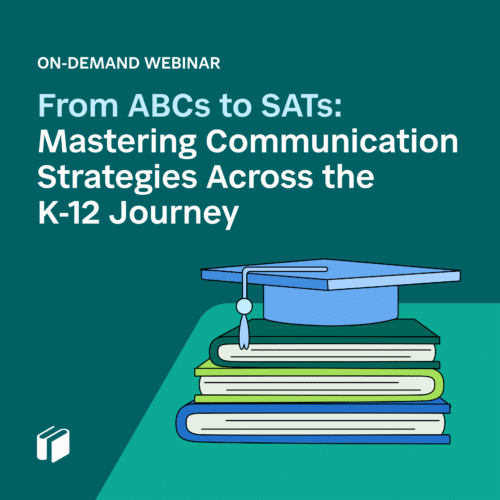
Featured Resource
Why Over Half of California School Districts Trust SchoolStatus
Read More >Join Mission: Attendance to reduce chronic absenteeism in 2025-26! >> Learn How <<





“Did you hear the good news?”
Calling families to share positive feedback about their student is a great way to start a relationship with them. Are you calling with good news on a regular basis? If not, here are some tips to help you create your own strategy for revving up your calls.
If you work in education, you know that some families only hear from the school when the news is not so good.
Homework wasn’t turned in.
Behavioral strategies aren’t working.
An absence last month was never excused.
Is everything okay at home?
Even a well-intended phone call from a teacher or administrator can feel like an insult––or, even worse––an accusation that your child or your family is somehow not enough.
Kids need positive reinforcement, and families do too. It’s a great idea to make a point of reaching out when students and families are on the right track. Families deserve to know when they are doing things right.
Is a student doing something good right now? It may be something as simple as seeing improvement in the student by staying awake or sitting in their seat for an entire class period. When you see a child doing their best, call their family right then and there. Brag about the student and watch that child glow for the rest of the day.
Set a goal for yourself. Could you call two of your students’ families this week? Maybe you can even call one family per day! Take a minute during class to note some positive comments or snap a photo that you can later share in a call—or even in a text or email.
Here are some tips to help you make positive school-home communications a part of your day, every day.
Pick a student with whom you have had limited family contact. Before you call, you ask the student a few questions about their home life.
Who lives at home with you?
What days do you go from one parent’s house to the other?
Do you ride the bus, or does someone pick you up at school?
Now, think about students whose families may have gotten more than their fair share of negative calls from the school and ask yourself:
Do you have to deliver bad news? If you do, sandwich the negative information between two compliments. Try something like this:
Is the student with the most discipline infractions also a talented artist?
Is a hardworking student struggling academically?
Each child is special in their own way. Yet, some require more attention than others. There are always a few students who fly under the radar because they don’t need a lot of redirection or attract a lot of praise. Don’t forget that those families would also love to hear about their child’s success.
Is one of those students being kind to a student who is going through a difficult time?
Did one of your “B” students pick out a surprisingly difficult book to read?
Do you see interest in a new activity from a student who typically coasts through school?
Finally, dedicate some time to those “perfect” kids who seem to have it all together. When it comes to school-home communication, students who are doing well in school can get lost in the shuffle.
Who are your top five GPA students?
Do you have a student who has never had a discipline incident?
Is the student with perfect attendance also especially compassionate or cheerful?

Learn tips to engage students and families at every stage of their educational journey.
Watch NowFamilies do want to communicate with teachers. Still, many are reluctant to answer the phone these days. Maybe they are working. Maybe they are sleeping because they work different hours. They may think the call is a telemarketer––or a bill collector––when they don’t recognize the number.
Start by texting them first. Introduce yourself. Then, ask them to save you as a contact so they will recognize your number when you call next time.
If you don’t hear back, ask the student to text their family with a “heads up” message, and then follow with a message from you immediately after. If that doesn’t work, try emailing them. If all else fails, write the good news in a note and pin it to the student’s shirt!
Having positive contact with families can be fun and rewarding for everyone. It feels great to tell someone that they—and their child—are impacting the world in a positive way. Keep a record of the calls that you are making and celebrate your own accomplishments, too!
 Lhay Thriffiley
Lhay ThriffileyImplementation Manager
Lhay Thriffiley is a multifaceted professional, excelling in technical writing and customer care. Beyond her blogging endeavors, she actively contributes to districts by analyzing student data and fostering enhanced Family connections. In her role as an Implementation Manager, Lhay undertakes diverse responsibilities such as crafting creative customer communications, technical writing, providing customer support, enhancing user experience, conducting product demos, and developing training tools. Additionally, Lhay engages in art-based projects, offering career development support to individual artists, and lends organizational assistance to local nonprofits in her community.
News, articles, and tips for meeting your district’s goals—delivered to your inbox.
Ready to learn more about our suite of solutions?
